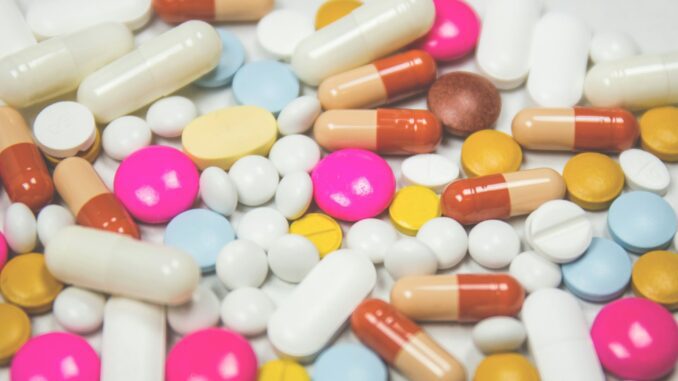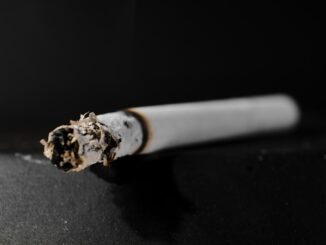
Anti-substance abuse campaigns are much needed in South Africa as one of the main effects of substance abuse is a leading increase in crime. Many individuals that are addicted to drugs resorts to criminal activities as a way to finance and continue their addiction.
This is leading to an increase in theft, burglary and other violent crimes, especially among communities where drug abuse is an apparent issue. Communities, organisations and governments should work together to combat the illicit trade and substance abuse.
What is Substance Abuse?
According to Anti-substance abuse campaigns substance abuse is a disorder that affects an individual’s functioning of the brain and behaviour. This is a result of being unable to control one’s own need for the use of legal or illegal drugs or medication.
Substances such as alcohol, marijuana and nicotine are considered as drugs as they have a high tendency of causing addiction to a person that uses them. When a person gets addicted they continue to use the drug regardless of the harm it causes to them.
Many people wonder how can drug addiction start in the first place? It starts with experimental use of a recreational drug. This tends to take place in social situations and eventually becomes a frequent use to some people.
For others drug abuse starts with prescription medication given as a form of treatment by a medical practitioner to treat a disease. The risk of how fast one may get addicted depends from one drug to another. For example, some drugs such as opioids have a higher risk of getting a person addicted.
As time passes, you may need higher doses within a shorter period of time in order to get high. It becomes to the point where you are abusing substances and drugs just to feel good. And a person that is addicted may find it extremely difficult to go on without the use of drugs.
In the event the person is deprived of the drug after prolong use, they may suffer extreme withdrawal symptoms. This is all the more reasons why anti-substance abuse campaigns are crucial in combatting the issue and raising awareness especially to young people.
Signs of drug use or Intoxication
When a person is addicted to drugs or are dealing with prolong intoxication they exhibit signs and symptoms some of which consist of:
- Finding it challenging in school to perform academically and lack of interest
- Poor academic performance and a gradual decline in grades
- Poor work performance and continuously being late for work with a decline in performance reviews
- Evident changes in physical appearance together with a lack of self-interest and grooming
- Altered behaviour, detachment from social setting with an increased need for privacy
- Rapid changes and problems in relationships
- A notable lack of energy when performing day to day activities
- Debt, borrowing money or overspending
- Lack of financial management and months of unpaid bills
- Decreased appetite and drastic weight loss
- Poor skin tone, blood shot eyes and appearing tired
- Defensive when confronted or questioned about possible substance abuse
The National anti-drug abuse Campaign Project
According to the South African Government News Agency, many outreach programs are taking place in the country in order to combat the abuse of substances. This anti addiction campaign attempts to foster safer and healthier communities. This is done though
- coordinated prevention efforts
- offering treatments for substance abuse disorders
- decreasing the production and distribution of illegal drugs
The Department of Social Development of South Africa has started the National Anti-Drug Awareness Week. This is done in order to raise awareness on alcohol abuse and different substance abuse in the country.
This anti-drug abuse campaign project is also done in alignment with the United Nations Office on Drugs and Crime (UNODC) and the International Agency Network for Demand Reduction, Drug Control, and Crime Prevention.
One of the aims of this project is to prioritise the well-being of individuals and decrease stigma that is associated with drug abuse. The organisation with their work to-date has reached over 92,363 individuals through 3 335 initiatives across South Africa.
Effects of Substance Abuse in South Africa
One of the contributing causes of poverty in South Africa is drug abuse. Many individuals that are having an addiction to drugs and alcohol struggle to support themselves and their families.
This is causing financial strains and hardships and increasing the burden of the welfare system. Some of the effects of substance abuse consist of;
- Physical and Mental health problems
- Heart disease
- Liver damage
- Kidney failure
- Increased risk of HIV and infectious diseases
- A weak immune system
- Abnormal heart rate
- Collapsed Veins
- Heart attacks
- Changes in appetite and weight loss
- Mental confusion
- Lack of coordination’
- Lung disease
- Cancer
- Memory problems
- Inability to make decisions
- Seizures
Practical strategies to ensure anti substance abuse campaigns are effective
In order to battle the problem of drug abuse and addiction in South Africa, a diverse approach is needed. If you are wondering how can anti substance abuse campaigns be effective, here are a few steps:
- Increase access to treatment
- Increase access to rehabilitation services for individuals that struggle with addiction
- Raise awareness of its long-term effects and dangers of misuse
- Provide free counselling services and therapy for those that cannot afford
- For those that are addicted to opioids assist with medication treatment plans
- Address the public pertaining to the root causes of drug abuse such as poverty and unemployment
- Press the government to initiate education programs for all which will decrease poverty and unemployment
- Initiate education campaigns for school children in order to reduce the stigma surrounding addiction
- Create non-judgmental spaces for addicted individuals to seek help
- Strengthen law enforcements with regards to combatting drug trafficking and distribution
Conclusion
Anti-substance abuse campaigns are much needed in the nation in order to prevent more people from getting into drugs. Raising public awareness through campaigns is a primary start to combatting the issue and ensuring a safe public space for all.
Key Points
- Substance abuse contributes to rising crime rates in South Africa, especially in communities heavily affected by drug addiction.
- Addiction often begins with experimental drug use or prescribed medication, leading to dependency and escalating drug abuse.
- Anti-substance abuse campaigns are crucial for raising awareness and preventing addiction, particularly among young people.
- The South African government, through various outreach programs, is actively working to combat substance abuse and foster safer communities.
- Substance abuse in South Africa significantly impacts poverty, health, and the welfare system, leading to financial hardship and health risks.
- Effective anti-substance abuse campaigns should focus on increasing treatment access, raising awareness, and addressing the root causes of addiction, such as poverty and unemployment.
FAQs
What are the positive effects of anti-drug campaigns?
A majority of students report having a positive impact of anti-drug campaigns and advertisements. Around 92% said it was increasing their knowledge of drugs. And 60% said they were gaining stronger beliefs pertaining to the dangers of drugs. Around 52% stated that they developed more negative attitudes towards using drugs.
How widespread is drug abuse in South Africa?
Drug abuse in South Africa is a wide spread problem that is extremely serious. According to reports, the use of drugs is twice the world norm. And over 15% of our population has a drug problem.
What are the determinants of substance abuse in South Africa?
According to studies done in South Africa, multiple demographic factors are associated with adolescent substance abuse. This includes being male, age, influence of friends that use substances, unemployed parents and low income family backgrounds.
What is the purpose of anti-drug?
It is to remove or take away drugs from the public through market denial operations prevention of diversion from the licit to illicit market. This reduces the rise of illicit drugs through sustainable alternative development programs.


